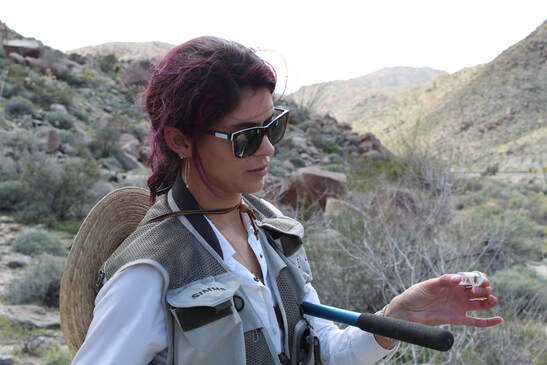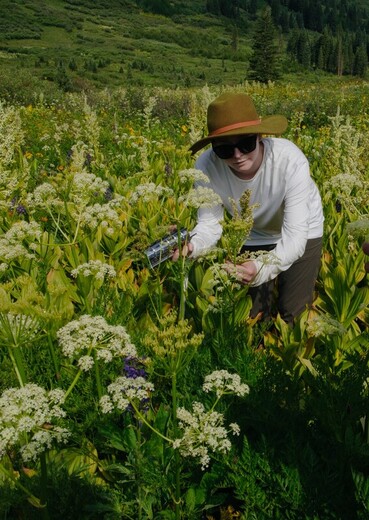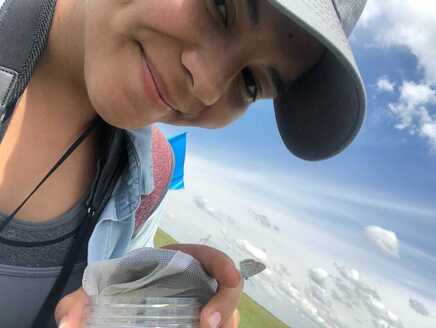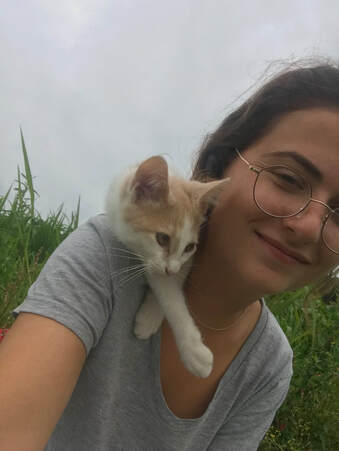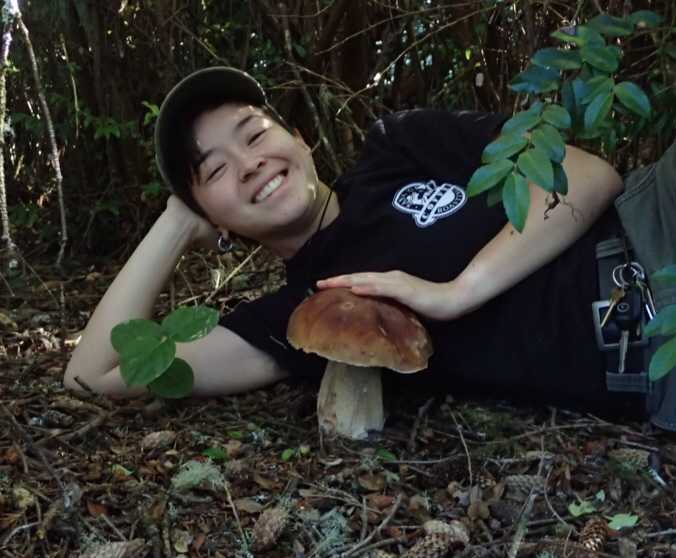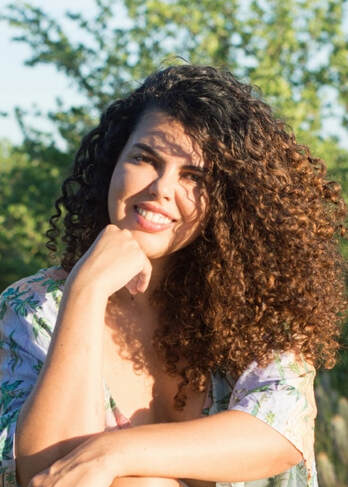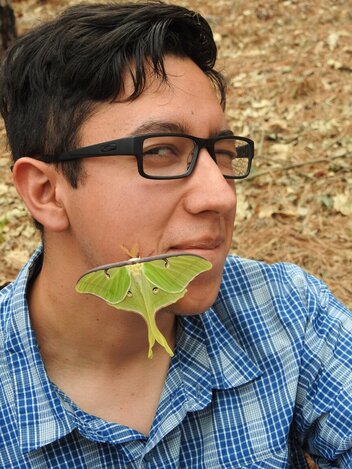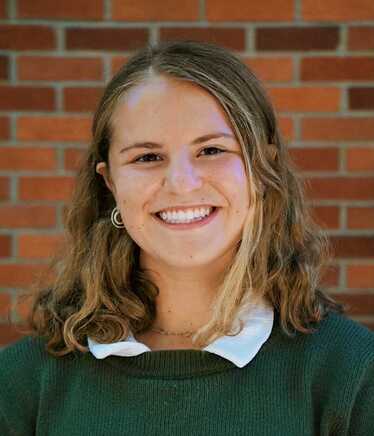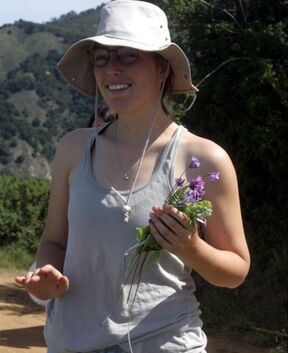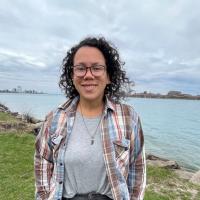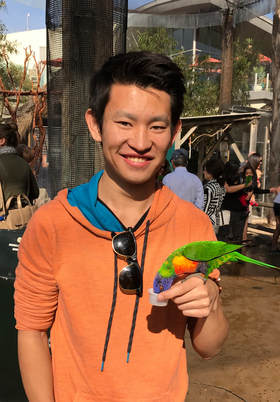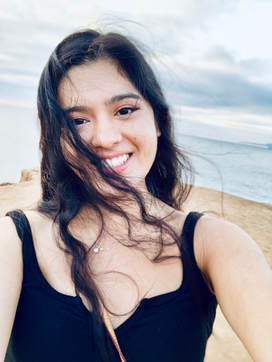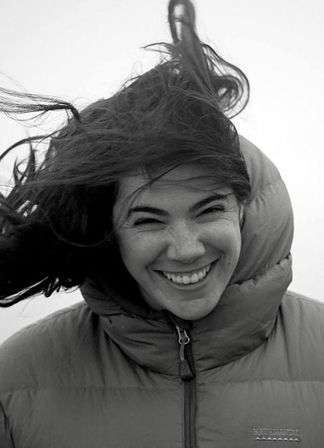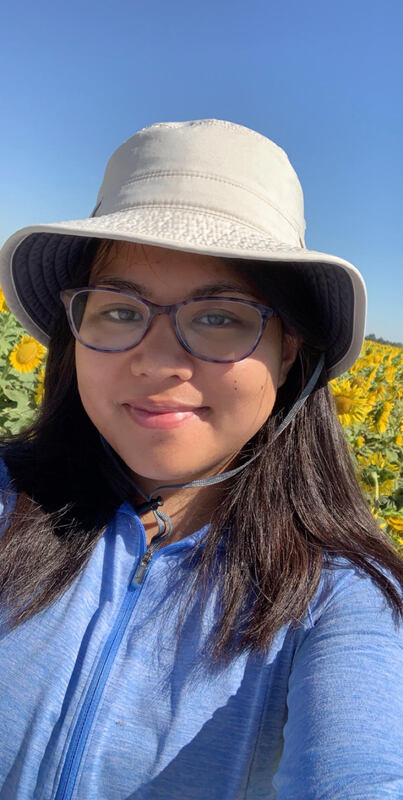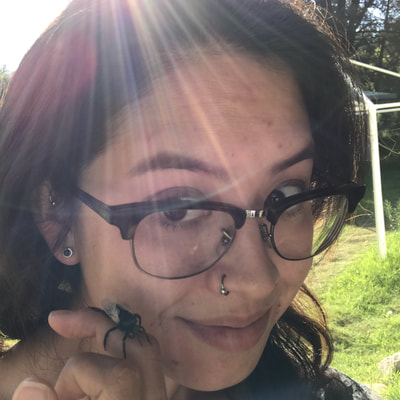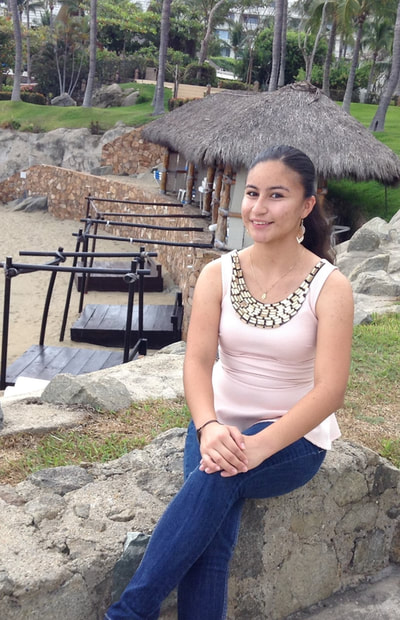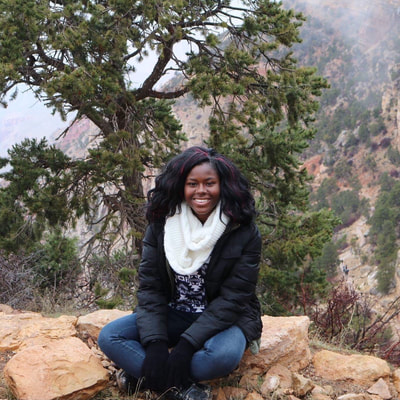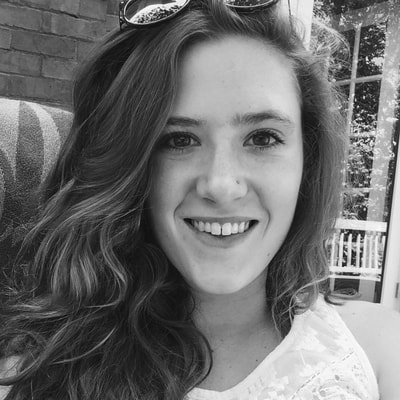Lauren C. Ponisio
|
Our lab's research focuses on how species interactions maintain species diversity and how we can harness these processes to manage and restore diversity in human-modified habitats. Our lab combining modeling, synthesis and field-based work, and adhere to the principles of reproducible, open science.
Lauren earned a Ph.D. from the University of California, Berkeley, and an M.S. and B.S. from Stanford University. Her research has examined ways to persuade California almond growers to adopt more bee-friendly agricultural practices, discovered how native bee species may be best equipped to survive intensive agricultural practices, and analyzed how forest fires can help maintain pollinator biodiversity. She is currently leading a study that could change how forestlands in the Pacific Northwest are managed to benefit wild bees. In addition to her research in the biological sciences, her mission is to promote human diversity in the sciences. |
Rebecca Hayes |
|
|
PhD student
Rebecca is community ecologist that uses field, lab, and computational methods to explore biogeographical questions and host-microbe interactions. She is interested in understanding the biotic and abiotic drivers of bee gut microbiome variation and parasite dynamics. Specifically, Rebecca studies bee communities in two systems: pristine, high-elevation mountain meadows in the Madrean Sky Islands Archipelago in Arizona and New Mexico and highly human-modified industrial timber plantations in the Oregon Cascades mountain range. In the field, she performs bee and plant community surveys and collect insect specimens using hand-netting and passive capture trapping to understand the patterns of diversity of pollinators and floral resources. In the lab, she uses Illumina next-generation sequencing and qPCR techniques to characterize bacterial and parasite communities living in bee guts, as well as the pollen they collect. She utilizes bioinformatics, Bayesian structural equation modeling, and machine learning methods to infer the causes and consequences of interspecific spatial variation of host-associated organisms and interactions. For my dissertation, Rebecca aims to answer three questions. First, what are the environmental and biotic drivers of spatial variation in bee-microbe interactions along a latitudinal gradient? Secondly, how does size and configuration of high-severity wildfire affect parasite dynamics in forest bee communities? Finally, how can machine learning be harnessed to geolocate sample origin using bee-collected pollen to inform forensic studies of trace pollen? Following my PhD, Rebecca aspires to use my data science skillset to work on projects that enact social good in government or the private sector. |
Nicole Martinez |
|
|
PhD student
Nicole's general interest is in ecological interactions, entomology, and botany. She is from Puerto Rico where she studied the effects and changes in community dynamics on plant-pollinator interaction networks caused by hurricanes. Nicole is mainly interested in plant-pollinator interactions and how those interactions can be affected by different variables such as invasive species, natural disasters, and anthropogenic disturbances. She is also interested in how pollinators as drivers of natural selection can influence breeding systems in plants. |
Rose McDonald |
|
|
PhD student
Rose joined Dr. Ponisio’s lab in Fall 2022 after working as a research technician at the Montana State University where she studied honey host-pathogen interactions. She previously worked as a field technician at the University Wisconsin Madison, analyzing the impact of landscape composition on wild bee populations. She received her bachelor’s degrees of biology and history from UMass Amherst in 2021. For her Ph.D., Rose is reconstructing wild pollinator habitats within managed forests and is also interested in studying the underlying drivers of pathogen spread in wild bee communities. |
Jesse Fan Brown |
|
|
Masters student
Jess received their bachelor's degree in Ecology from UC Santa Cruz, where they studied competition dynamics between honeybees and native pollinator species in Anza-Borrego State Park. They have worked extensively on scrubland habitat restoration in the Zayante sandhills, Santa Cruz coastal dunes, and Marin Headlands. Jess is fascinated by oligolectic and habitat-specialist bees and is interested in the potential of landscape-scale habitat restoration to buffer specialized bee species against local extinction. For their masters, they will be surveying Northwest forests to examine pollinator resource use in landscapes that are intensively managed for timber harvest. |
Emmanuelle Brito |
Visiting PhD student, CAPES – UFG Brazil
|
Alejandro Santillana |
|
|
PhD student
Alejandro received his bachelor's degree from the University of Texas, Austin where he studied ecology, evolution, and behavior. He studies the impact of climate change and land conversion on plant-pollinator networks in collaboration with the Jha lab at UT Austin. He surveys, identifies and curates pollinator insects in the Sky Islands and California Resurvey projects. |
Hannah Lewack |
|
|
Lab Manager
Hannah is a molecular ecology specialist. She received her bachelor's degree from the University of Oregon, where she studied biology and Chinese. As an undergraduate, Hannah was a field assistant in the lab where she studied pollinators in high alpine meadows around Oregon. Her interests are in host-parasite interactions and generating molecular methods. Hannah is responsible for screening all collected bees for pathogens, parasites, and viruses. |
|
|
Lab alumni |
